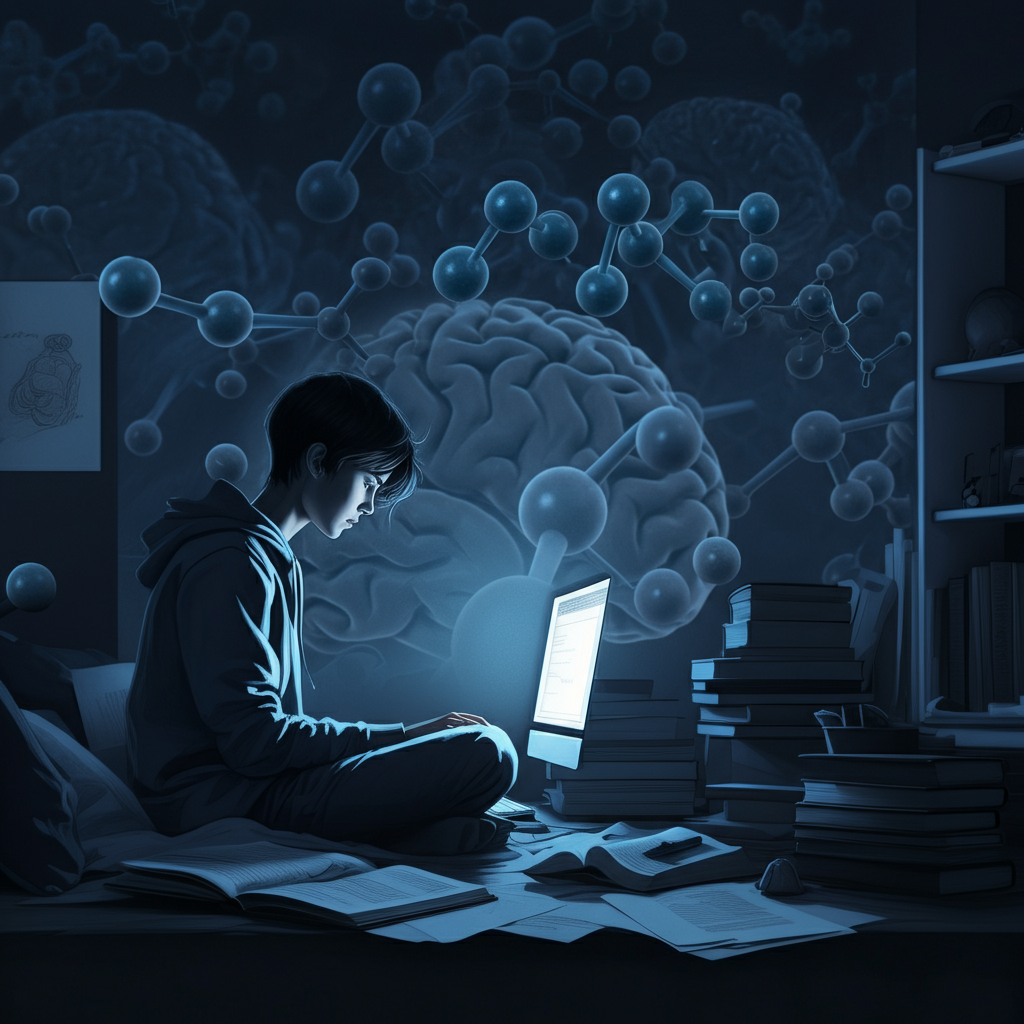How Overconsumption of Adult Content Affects Brain Chemistry

Adult content: it is right at the tips of our fingers as it is ever so easy to access. Given the different forms of adult content available, it is easier than ever for different types of audiences to view and consume material. But under all of that flashy appeal, it comes with its own consequences. Have you ever considered what it could do to your brain?
Many of us avoid it, but in today’s technology driven world, it is exceptionally important to address. How does the overconsumption of adult content affect one’s brain chemistry? In this post, we will dive straight into the science of it, including the mental health and behavioral impacts, as well as balancing solutions.
So much attention is given to adult content that the very basics of brain chemistry are forgotten.
To grasp the effects adult content has on the brain, it is prudent to know a few basics first. Neurotransmitters play a central role in this system; they are the brain’s chemical couriers, as they transmit messages that have a direct impact on our feelings, aspirations, and actions.
A very popular chemical is dopamine: rewarding during moments of happiness such as binged-watching a show, consuming mouthwatering food, smashing a goal or even physical affection. Medically speaking, the brain is gushing at you for indulging in moments of satisfaction. In simpler terms, dopamine resounds the message “Do this again and again!” But… things can change really quick.
Constant stimulation can yield unintended outcomes to your reward system and is not infinite.
The Dopamine Connection
When one views adult content, feelings of pleasure are generated because of the spike in dopamine levels. This spike due to stimulation can deceive your neural circuits during the short term into believing that repetitive consumption is the only option due to gratification.
As pleasurable as such spikes in dopamine are, they come with a cost. The brain faces massive challenges responding in a timely and courteous manner to dopamine, leading to a slackened response. This phenomenon in the neuroscience domain is referred to as dopamine desensitization. This process can lead a person to seek more and more extreme – or frequent –content in order to receive the same level of reward, flooding their life with stimuli and trapping them in a daunting cycle.
Desensitization and the Need for More
Recall how gradually starting to consume coffee builds ocular tolerance. The first cup is a buzz, but eventually, the same effect can only be obtained through two or three cups. The overconsumption of adult content can have a similar effect. In order to release the same levels of dopamine, the brain craves increasingly intense stimuli which entrenches the person deeper into unhealthy consumption patterns.
Rather persistently, this habit of amplifying the level of stimuli does not remain on your device. It can sideways move into your daily routine, disturb interactions with other people, and modify the perception your brain has of reality.
Cognitive Effects on Decision Making
While the amount of dopamine available to the body plays a significant factor in decision making, the pleasure centers of your brain is not the only region activated in the process.
An overexposure of adult content is likely detrimental to your prefrontal cortex—the section of the brain that governs decision-making, impulse control, and executive function.
Studies show that overindulgence hinders productivity and sustained attention by making it harder to resist impulsive urges. At its worst, your brain rewires itself to favor instant reward systems over long-term strategies. That is the risk of prolonged desensitization.
Psychological Effects
In addition to impaired cognition, overexposure to adult content is bound to affect mental well-being. Some of the most troubling impacts are:
Anxiety: An insatiable desire for reward can be maddening and ultimately result in unfulfillment.
Depression: An overload of adult content can escalate discontent, resulting in further detachment from real-life relationships, and a dampened sense of joy and excitement from everyday life.
Social Isolation: Exceedingly high levels of consumption can minimize interest in casual social interaction and relationship building, marking a significant barrier to real-world connectivity.
While adult content isn’t the definitive villain, the problem arises when it becomes overindulged in and can lead to increasingly dire consequences.
Strategies for Mitigation
The good news is that you’re far from helpless. Taking small, targeted actions can help you take back control and “reprogram” your brain through habitual behavior change. Here’s how to start:
1. Set Usage Limits
Schedule periods when you are allowed to engage, and set boundaries regarding how frequently you can log on. Cut back and make advanced plans to limit yourself as much as possible to make tracking simpler.
2. Practice Mindful Consumption
Consume materials pertaining to matters that uphold core values of respect towards one another. This moderation can have a positive effect towards avoiding excess and decrease the associated damage.
3. Diversify Dopamine Sources
Strengthen social connections, partake in physically and mentally stimulating activities, or even learn something new; train your brain to enjoy other rewarding activities.
4. Seek Support
If the urge to consume becomes uncontrollable, consider seeking a professional counselor or joining a support network. Reclaiming your balance doesn’t have to be a solitary journey; remember, seeking support isn’t a display of weakness, but rather a testament to your strength.
5. Limit Access to High-Stimulation Content
Look into digital wellbeing features or apps that block adult content as they can create a more positive browsing experience.
Moving Towards Controlled Watching
The human need to explore is intrinsic and fundamental. Pairing that with overexposure or overconsumption can have unintentional consequences, particularly among younger adults with still-developing brains.
When we understand how adult content impacts brain chemistry, we can learn to approach it more thoughtfully. Boundaries, alternative sources for dopamine, and professional help allow for freedom coupled with foresight and structure.
Give yourself the freedom to control your habits and how you map your neurons. Mindfulness doesn’t just help emotions—when it comes to your brain’s pathways, it can help tremendously.
Related posts




